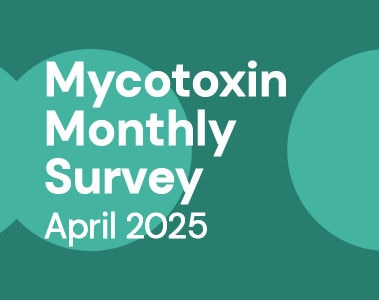
-
North America/EN
- Global
- North America
- Latin America
Low vitamin D can cause lameness in gilts
By: Lee Williamson of The Pig Site, North America
Dr. Maria Walsh, Global Marketing Director for swine with dsm-firmenich spoke with The Pig Site’s Sarah Mikesell at the 2023 World Pork Expo in Des Moines, Iowa, USA.
“We're all about preparing and protecting the gilt right now at dsm-firmenich because it's a very valuable animal in the herd,” said Walsh. “They're expensive animals, so we want to make sure that they last in the herd as long as possible.”
dsm-firmenich is focused on skeletal health, immunity, reproductive performance and assessing from a nutritional perspective how to reduce risks and support the gilt to stay in the herd as long as possible and to maximize production.
“One of the really interesting things when you look to see why gilts, such as party 1 and parity 2, are removed early from the herd is lameness,” she said. “It is one of the biggest reasons.”
These animals are bred to grow really fast and they're very lean. The question becomes how do we maximize whole growth and development to have good skeletal structure and make sure that gilts have time to develop their bones?
“We need to ensure they've got all the proper nutrition to do that. It's been one of the key pieces of research that we've developed specifically looking at vitamin D status,” said Walsh.
Vitamin D plays an important role in reducing things like osteochondrosis, which is one of the main causes of lameness in gilts. Research has shown a reduction in the amount of culling due to lameness and a reduction of osteochondrosis when feeding Hy-D, which is a dietary supplement that provides an advanced, safe source of vitamin D to support skeletal development and overall performance.
“It's been a really nice piece of research,” she explained. “We’ve also seen evidence supporting the development of the piglet in utero, as well. There's a reproductive element to it that can result in having heavier piglets as well.”
Walsh says Hy-D supports the development of muscle fibers, and increasing the number of muscle fibers that are being developed in utero is good news. Feeding Hy-D provides a 3% increase in litter birth weights and 3% increase in weaning weights.
Walsh said they are also looking at the risk of mycotoxins, which are interlinked when it comes to vitamin D nutrition.
“Because quite a lot of mycotoxins actually impact the liver and the kidney, which are very important in the metabolism of vitamin D - so de-risking on one side and supporting on the other side.”
“It's really thinking about that whole process, not just about keeping the gilt in the herd longer,” said Dr. Walsh. “But also making sure that her progeny is developing in a way that's going to improve their performance as well.”
The research shows it’s more than just the gilt that is affected by proper nutrition. Producers need to secure the future of the entire production system by starting with the gilt, but it has implications for all the offspring.
“Well, I think [the research] starts to uncover some of these underlying issues that may or may not be super visible to the producer,” added Dr. Walsh. “They're starting to see lameness, or they are having problems with reproduction and not really understanding what's behind it.”
Right now, dsm-firmenich is trying to build information and knowledge around the mycotoxin risk and the status of gilts and their vitamin D status and what that means in terms of the incidence of lameness and reproductive issues.
“We are bringing a lot more knowledge to the table, which helps producers make better decisions,” said Dr. Walsh. “When you have more information, you can make more informed decisions.”
27 September 2023
Not all products are available in all markets nor associated claims allowed in all regions (including but not limited to USA and Canada).
We detected that you are visitng this page from United States. Therefore we are redirecting you to the localized version.